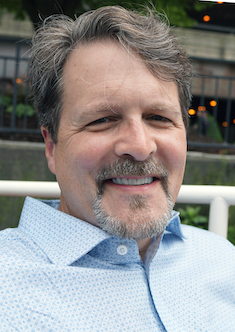
What is your specific area of interest in geriatric surgery?
As a geriatric neuropsychologist and cognitive neuroscientist, I am interested in the pathophysiology and phenomenology of geriatric post-operative cognitive decline (POCD) and delirium, specifically how the two conditions may share features, transition or interact to increase late-life dementia risk.
What is an example of your best work in geriatric research?
I am particularly proud of the functional neuroimaging studies I have conducted with various collaborators that have revealed underlying functional neuroanatomical correlates of the late-life dementia risk gene Apolipoprotein E (APoE) in young adults, and most recently, we have uncovered regional brain activity patterns associated with the severity of post-operative cognitive decline (POCD).
In your opinion, what is an important health services research question that needs to be answered in the field of geriatric surgery?
How can we improve the prediction, diagnosis and treatment of post-operative delirium? As, this condition has significant impact on patients’ post-operative morbidity and mortality, as well as further significant “downstream” risks for dementia.
What are your most relevant geriatric surgery publications?
Task-related changes in degree centrality and local coherence of the posterior cingulate cortex after major cardiac surgery in older adults. Browndyke JN, Berger M, Smith PJ, Harshbarger TB, Monge ZA, Panchal V, Bisanar TL, Glower DD, Alexander JH, Cabeza R, Welsh-Bohmer K, Newman MF, Mathew JP; Duke Neurologic Outcomes Research Group (NORG). Hum Brain Mapp. 2018 Feb;39(2):985-1003.
Longitudinal Changes in Regional Cerebral Perfusion and Cognition After Cardiac Operation. Smith PJ, Browndyke JN, Monge ZA, Harshbarger TB, James ML, Gaca JG, Alexander JH, Berger MM, Newman MF, Milano CA, Mathew JP; Neurologic Outcomes Research Group (NORG). Ann Thorac Surg. 2019 Jan;107(1):112-118.
Resting-State Functional Connectivity and Cognition After Major Cardiac Surgery in Older Adults without Preoperative Cognitive Impairment: Preliminary Findings. Browndyke JN, Berger M, Harshbarger TB, Smith PJ, White W, Bisanar TL, Alexander JH, Gaca JG, Welsh-Bohmer K, Newman MF, Mathew JP. J Am Geriatr Soc. 2017 Jan;65(1):e6-e12.
Effect of Cerebral Embolic Protection Devices on CNS Infarction in Surgical Aortic Valve Replacement: A Randomized Clinical Trial. Mack MJ, Acker MA, Gelijns AC, Overbey JR, Parides MK, Browndyke JN, Groh MA, Moskowitz AJ, Jeffries NO, Ailawadi G, Thourani VH, Moquete EG, Iribarne A, Voisine P, Perrault LP, Bowdish ME, Bilello M, Davatzikos C, Mangusan RF, Winkle RA, Smith PK, Michler RE, Miller MA, O'Sullivan KL, Taddei-Peters WC, Rose EA, Weisel RD, Furie KL, Bagiella E, Moy CS, O'Gara PT, Messé SR; Cardiothoracic Surgical Trials Network (CTSN). JAMA. 2017 Aug 8;318(6):536-547.
Proposed Standardized Neurological Endpoints for Cardiovascular Clinical Trials: An Academic Research Consortium Initiative. Lansky AJ, Messé SR, Brickman AM, Dwyer M, van der Worp HB, Lazar RM, Pietras CG, Abrams KJ, McFadden E, Petersen NH, Browndyke J, Prendergast B, Ng VG, Cutlip DE, Kapadia S, Krucoff MW, Linke A, Moy CS, Schofer J, van Es GA, Virmani R, Popma J, Parides MK, Kodali S, Bilello M, Zivadinov R, Akar J, Furie KL, Gress D, Voros S, Moses J, Greer D, Forrest JK, Holmes D, Kappetein AP, Mack M, Baumbach A. J Am Coll Cardiol. 2017 Feb 14;69(6):679-691.
Neurological injury after transcatheter aortic valve implantation: are the trees falling silently or is our hearing impaired? Browndyke JN, Mathew JP. Circ Cardiovasc Interv. 2013 Dec;6(6):599-601.
What is a fun fact about you?
I am an avid white water kayaker and have a passion for Art Nouveau antiques.